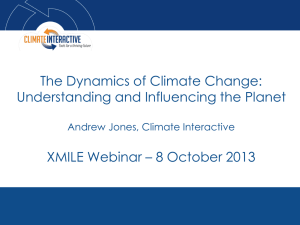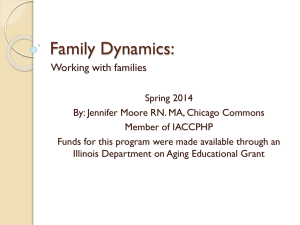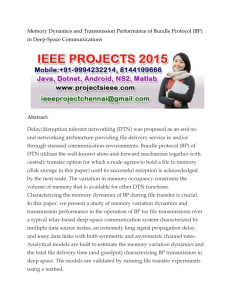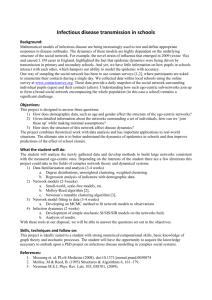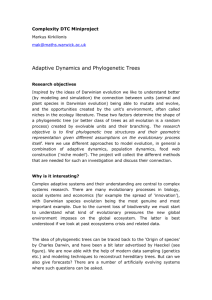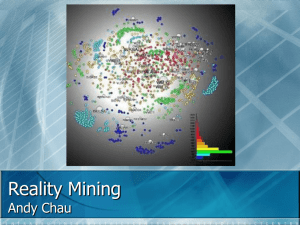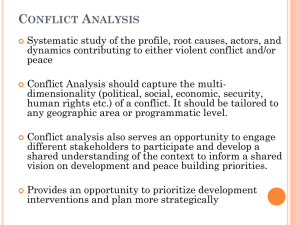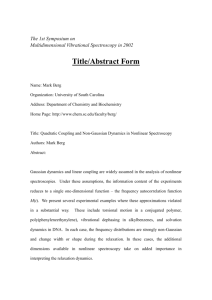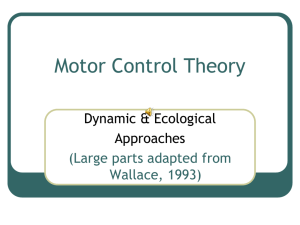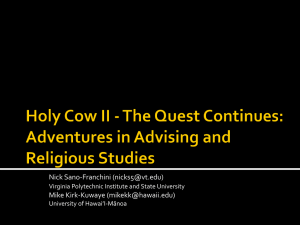Eco-Evolutionary Food Web Dynamics Under Coloured
advertisement
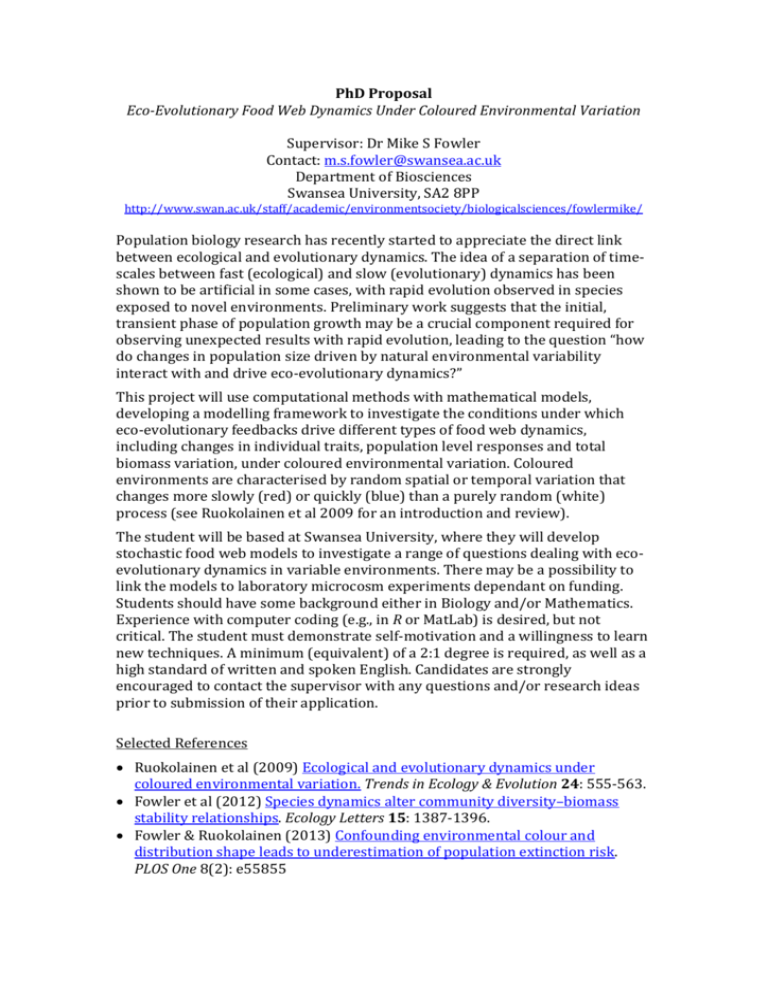
PhD Proposal Eco-Evolutionary Food Web Dynamics Under Coloured Environmental Variation Supervisor: Dr Mike S Fowler Contact: m.s.fowler@swansea.ac.uk Department of Biosciences Swansea University, SA2 8PP http://www.swan.ac.uk/staff/academic/environmentsociety/biologicalsciences/fowlermike/ Population biology research has recently started to appreciate the direct link between ecological and evolutionary dynamics. The idea of a separation of timescales between fast (ecological) and slow (evolutionary) dynamics has been shown to be artificial in some cases, with rapid evolution observed in species exposed to novel environments. Preliminary work suggests that the initial, transient phase of population growth may be a crucial component required for observing unexpected results with rapid evolution, leading to the question “how do changes in population size driven by natural environmental variability interact with and drive eco-evolutionary dynamics?” This project will use computational methods with mathematical models, developing a modelling framework to investigate the conditions under which eco-evolutionary feedbacks drive different types of food web dynamics, including changes in individual traits, population level responses and total biomass variation, under coloured environmental variation. Coloured environments are characterised by random spatial or temporal variation that changes more slowly (red) or quickly (blue) than a purely random (white) process (see Ruokolainen et al 2009 for an introduction and review). The student will be based at Swansea University, where they will develop stochastic food web models to investigate a range of questions dealing with ecoevolutionary dynamics in variable environments. There may be a possibility to link the models to laboratory microcosm experiments dependant on funding. Students should have some background either in Biology and/or Mathematics. Experience with computer coding (e.g., in R or MatLab) is desired, but not critical. The student must demonstrate self-motivation and a willingness to learn new techniques. A minimum (equivalent) of a 2:1 degree is required, as well as a high standard of written and spoken English. Candidates are strongly encouraged to contact the supervisor with any questions and/or research ideas prior to submission of their application. Selected References Ruokolainen et al (2009) Ecological and evolutionary dynamics under coloured environmental variation. Trends in Ecology & Evolution 24: 555-563. Fowler et al (2012) Species dynamics alter community diversity–biomass stability relationships. Ecology Letters 15: 1387-1396. Fowler & Ruokolainen (2013) Confounding environmental colour and distribution shape leads to underestimation of population extinction risk. PLOS One 8(2): e55855
